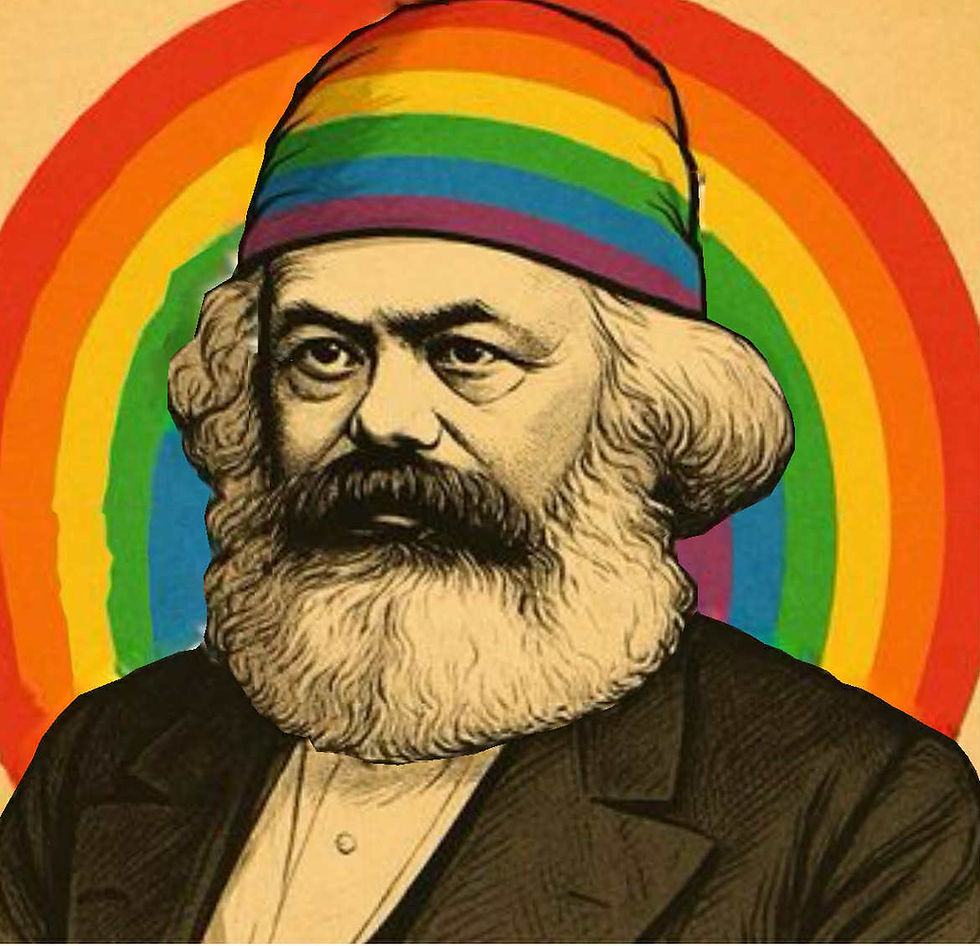Revolutionary Justice
- Mike Burnette
- Dec 12, 2024
- 4 min read
There is a grim NEO-MARXIST ideology of "committing violence to stop violence." It is seen by Neo-Marixists as a form of "revolutionary justice." This concept often frames violence as a necessary and justified response to perceived systemic oppression or structural violence. According to James Lindsay, this perspective treats societal systems (capitalism, patriarchy, colonialism, etc.) as inherently violent and oppressive, thereby legitimizing direct action, including physical violence, to dismantle these systems.
Here are the key components of this idea as Lindsay interprets it:
1. Structural Violence as the Justification
Definition of Structural Violence: Neo-Marxists often describe "violence" not just as physical harm but as systemic inequalities, oppression, or conditions that harm marginalized groups. Examples include economic inequality, discrimination, and lack of access to resources.
Legitimization of Response: If systemic structures are deemed violent, any actions taken to disrupt or dismantle them (even physical violence) can be justified as defensive.
2. Revolutionary Great Lakes Justice Center
Redefinition of Morality: Under this framework, traditional moral codes against violence are reinterpreted. Violence is seen not as inherently wrong but as context-dependent. If used against an oppressive system, it becomes a moral imperative.
Historical Precedents: Neo-Marxists often cite examples from revolutions or liberation movements where violence was used to overthrow oppressive regimes (e.g., the French or Russian Revolutions).
3. The Paradox of Violence to Stop Violence
Justification of Preemptive Action: By defining the status quo as violent, advocates of this view argue that any resistance to systemic structures—regardless of its method—can be seen as self-defense.
Critique of Nonviolence: Nonviolence or reformist approaches are often dismissed as insufficient or complicit in maintaining oppressive systems.
4. Lindsay’s Criticism
Danger of Escalation: Lindsay warns that such logic can lead to cycles of reciprocal violence, where each side sees itself as justified in escalating conflict.
Loss of Objective Morality: He argues that this perspective undermines universal moral standards, replacing them with relativistic justifications based on ideological goals.
Erosion of Liberal Principles: Lindsay claims that this approach rejects the foundational principles of liberal democracy, such as free speech, rule of law, and nonviolent conflict resolution.
Philosophical Context
Frantz Fanon and Revolutionary Violence: James Lindsay’s critique often intersects with ideas proposed by figures like Frantz Fanon, who argued that violence is a cathartic and necessary tool for liberation from colonial oppression.
Postmodern Influence: Lindsay ties this justification for violence to the postmodern and critical theory traditions, which reject objectivity and universal truth in favor of narratives centered on power dynamics.
In summary, the "violence to stop violence" idea is based on the redefinition of violence to include systemic and structural harms, making resistance—sometimes physical—morally justifiable. Lindsay criticizes this view as inherently destabilizing, warning that it leads to cycles of violence and undermines the principles of peaceful conflict resolution.
Revolutionary Justice, particularly when it involves justifying violence for a perceived higher moral cause, can lead to both sides fighting dirty. This escalatory dynamic creates several serious issues:
1. Escalation of Violence
Cycle of Retaliation: Once one side justifies violence as a moral imperative, the opposing side often adopts the same rationale to defend its own interests. Both begin to view violence as necessary to achieve their goals, leading to a vicious cycle.
Loss of Restraint: Traditional rules of engagement, ethical considerations, or legal boundaries are eroded. Each side becomes increasingly willing to use extreme measures to "win" or "survive."
2. Breakdown of Social Trust
Suspicion and Fear: Revolutionary justice frames the opposing side as inherently unjust, evil, or oppressive. This eliminates room for dialogue and negotiation, fostering fear and mutual suspicion.
Dismantling Institutions: As violence intensifies, institutions like law enforcement, courts, or even democratic governance are delegitimized. Without these mediating structures, conflicts become personal and chaotic.
3. Justification for Atrocities
Ends Justify the Means Mentality: Both sides feel morally justified in committing atrocities, believing their actions are in service of a greater good.
Demonization of the Other: Revolutionary justice often dehumanizes opponents, making violence against them feel less morally troubling. This can lead to atrocities like torture, targeting civilians, or mass killings.
4. Undermining the Moral High Ground
Loss of Credibility: Both sides lose legitimacy in the eyes of neutral observers or potential allies when they adopt "dirty" tactics.
Erosion of Principles: If a revolution relies on violence and oppression to achieve justice, it risks becoming as corrupt or unjust as the system it seeks to overthrow.
5. Prolonged Conflict and Stalemate
Entrenched Positions: Revolutionary justice can make compromise impossible. If each side believes the other represents existential evil, they see no option but total victory.
Generational Struggles: Violence often leaves behind deep scars, creating long-term divisions that make reconciliation difficult. The conflict becomes an enduring feature of the social landscape.
Historical Parallels
French Revolution: Initially aimed at establishing liberty and equality, it descended into the Reign of Terror, where both sides used extreme violence, leading to instability and eventually the rise of Napoleon.
Russian Revolution: Revolutionary justice justified widespread purges, gulags, and mass executions, leading to a regime that replicated many of the oppressive traits it sought to dismantle.
Civil Wars: In many civil conflicts, "dirty fighting" on both sides leads to protracted suffering and devastation, with neither side achieving a sustainable victory.
Why Fighting Dirty Backfires
Moral Corruption: Engaging in unjust tactics erodes the moral integrity of even well-meaning movements.
Strengthening the Enemy: Opponents use the violence as propaganda to rally their own support, often gaining sympathizers.
Alienation of Neutral Parties: Violent or extreme behavior often alienates those in the middle who might otherwise support the cause.
Revolutionary justice, while often inspired by noble intentions, risks devolving into the very oppression it seeks to end. Encouraging both sides to "fight dirty" ensures greater harm and chaos, making long-term peace and justice nearly impossible. This highlights the critical importance of maintaining ethical and legal standards, even in the face of perceived injustice.




Comments